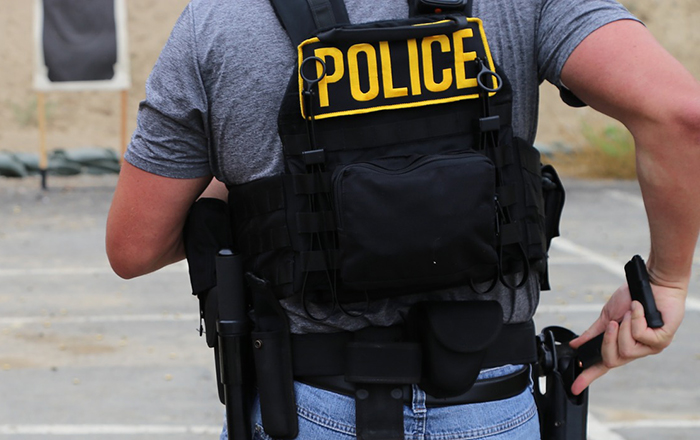
How do you protect yourself from illegal search and seizure? How do you protect yourself from being arrested or detained. You’ve got to understand the difference between stop, frisk, detainment, arrest, and search.
You’re minding your own business and find yourself in the crosshairs of local police or state troopers. Maybe you’re driving home from work, maybe you’re in public at a concert. Maybe you’re just on an evening walk to the convenience store when you find yourself being stopped and questioned by police. Knowing the difference between a stop, frisk, detain, arrest, and search is critical to the outcome of your interaction.
Stop (Detainment)
Police officers have a right to “stop” you if they witness you committing a crime or have reasonable suspicion you have committed a crime. Standard policy is to stop you, ask questions, and attempt to have a conversation that gives them more information. There is no difference between being stopped and detained. If you are being stopped, you are being detained. The difference between a detainment and arrest is that when detained you must feel free to end the conversation and walk away. You must stop, but while detained you are not required to answer questions and you must have the right to leave if you ask. Being detained does not mean you are under arrest.
Frisk
Can a police officer touch you or your clothing during a stop? What gives a police officer the right to frisk you? While you are stopped and detained, an officer may frisk you if there is verifiable suspicion that you may be armed and dangerous. If they believe you could be carrying a weapon or drugs, they may frisk you. If they find something illegal, this is when the detainment can turn into an arrest.
It’s important to understand that during a detainment and frisking for a weapon, if the police officer discovers contraband such as drugs, the detainment can turn into an arrest and the search may be considered a legal search. The Supreme Court has upheld the right of officers to search suspects for one reason and charge them with another crime based on the evidence discovered.
Frisking is a gray area, because many times police officers do not have verifiable suspicion to frisk in the first place. If an attorney can demonstrate that police frisked you without probable cause, evidence may be thrown out in court and you may have a case against the offending officer for violating your civil rights.
Arrest
If a police officer feels there is probable cause of a crime, even if there is no evidence, you may be arrested. Probable cause consists of the objective indication that the suspect has done something illegal. Examples include reports of someone matching your description committing a crime, witness accounts, police visually seeing you running from a crime scene or committing a crime, and many other activities. This is where much of the gray area exists. Sometimes police want to search a suspect or make an arrest without enough objective suspicion. If you feel you have been frisked, arrested, or your property searched without probable cause, this is the time to talk to an attorney.
Search
Police have a right to search the body and clothing of a suspect that is under arrest. Whether they have a right to search the vehicle, home, passengers, or private property of a suspect that has been detained or arrested is a topic that gets a lot of debate.
Police must be held to high standards on each decision and action they take. There are laws and guidelines they must follow. Many times when police are found guilty of violating a suspect’s rights, it’s because they did not anticipate that the suspect understood their rights.
Many times citizens allow police officers to violate their rights without repercussions. This can have the effect of encouraging law enforcement to be more aggressive or push the boundaries of what is legal. When law enforcement assumes a suspect doesn’t have an attorney or won’t hire one, a simple stop can turn into a frisk, arrest, and search very quickly.
There are many sources of legal information available online. The articles and information on our blog and website do not constitute legal advice. We adhere to all confidentiality requirements, but until we have accepted your case, no attorney-client privilege is established. The choice of selecting an attorney is an important personal decision that should be carefully considered. If you need legal advice, please contact an attorney directly. If you would like to find out more about having Getz & Braverman represent you or provide legal advice, contact us on this website or call us at 718-618-5567.


